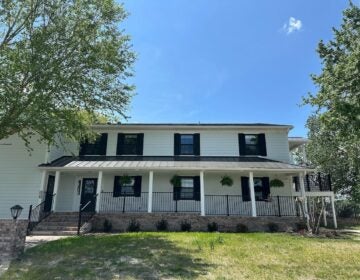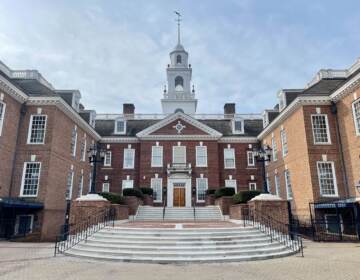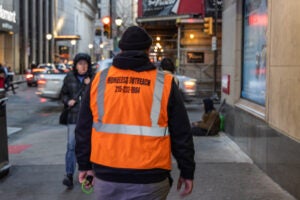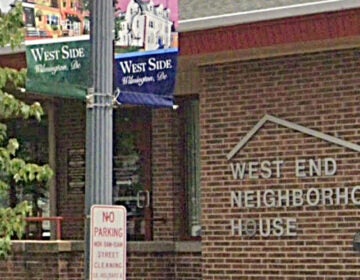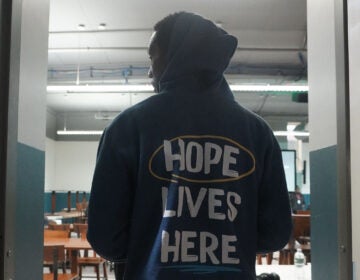‘They think you’re nothing’: Housing advocates say Wilmington homeless face limited shelter beds, police sweeps
Advocates say a lack of shelter beds is forcing people to sleep outside. But Wilmington officials plan to limit tents to one park.
What are journalists missing from the state of Delaware? What would you most like WHYY News to cover? Let us know.
Wilmington resident Debbie Pyle has been living without a home since 2019. Tears stream down her face as she describes her daily reality.
“There’s nothing good about being homeless, nothing, because you’re looked down on,” she said. “They think you’re nothing, you’re a piece of crap.”
Wilmington Mayor John Carney vowed to make addressing homelessness a priority in his first year in office. But housing advocates say recommendations recently issued by a city task force don’t go far enough.
The number of people experiencing homelessness in the state is growing. Nearly 1,600 people are unhoused in Delaware, according to January’s Point in Time count by the nonprofit organization Housing Alliance Delaware. More than 600 reside in Wilmington and, of those, just 188 received street services.
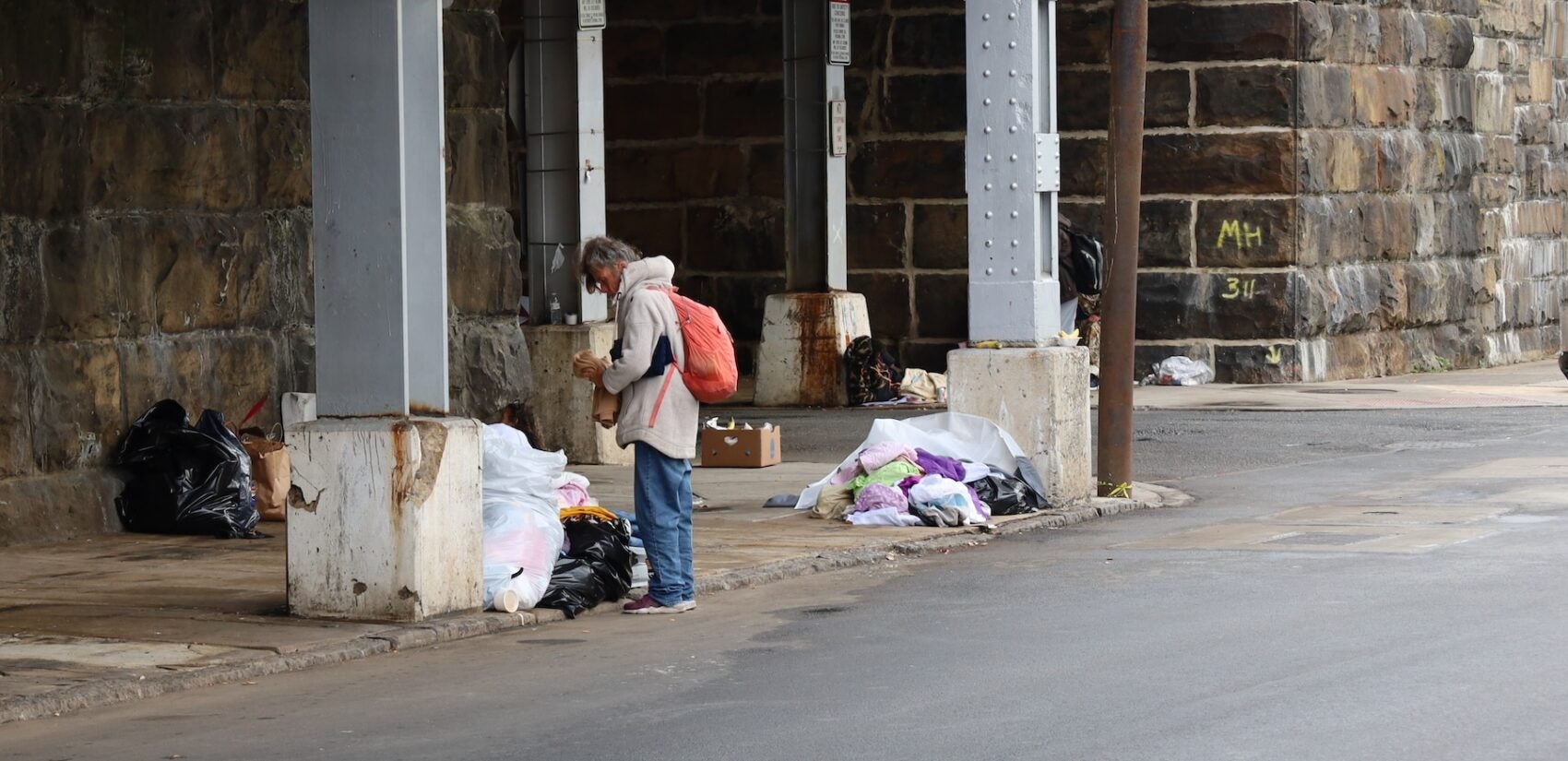
A city task force issued suggestions in September to combat the issue of homelessness. The group’s recommendations included allowing a temporary tent village at Christina Park, which would be limited to 28 tents. The city would sanction the encampment until “tiny homes” could be built in early 2026. The buildings could house 50–60 people and is based on the Georgetown transitional housing pallet village. Other recommendations include adding more drop-in centers and creating personal storage facilities. The recommendations don’t specify how they will be funded.
“These recommendations provide a compassionate, balanced approach to providing additional shelter beds and housing opportunities, medical care, mental health, and other services to unhoused individuals, if a sustainable funding source can be identified and approved,” the task force’s final report said. “The recommendations also reflect the fact that city property owners, business owners, renters, workers, and visitors have a right to expect orderly conduct, clean, safe, and sanitary conditions on city streets, sidewalks, parks, and other public property.”
Delaware advocates like Shyanne Miller have criticized the end result, saying the task force was more focused on making homelessness less visible than solving it.
“The recommendations were very limited,” she said. “They really focused on like managing the day-to-day of living outside, as opposed to making it so people don’t have to live outside.”
A spokesperson for Mayor John Carney said that if a temporary tent village is established at the park, all other city encampments will be banned.
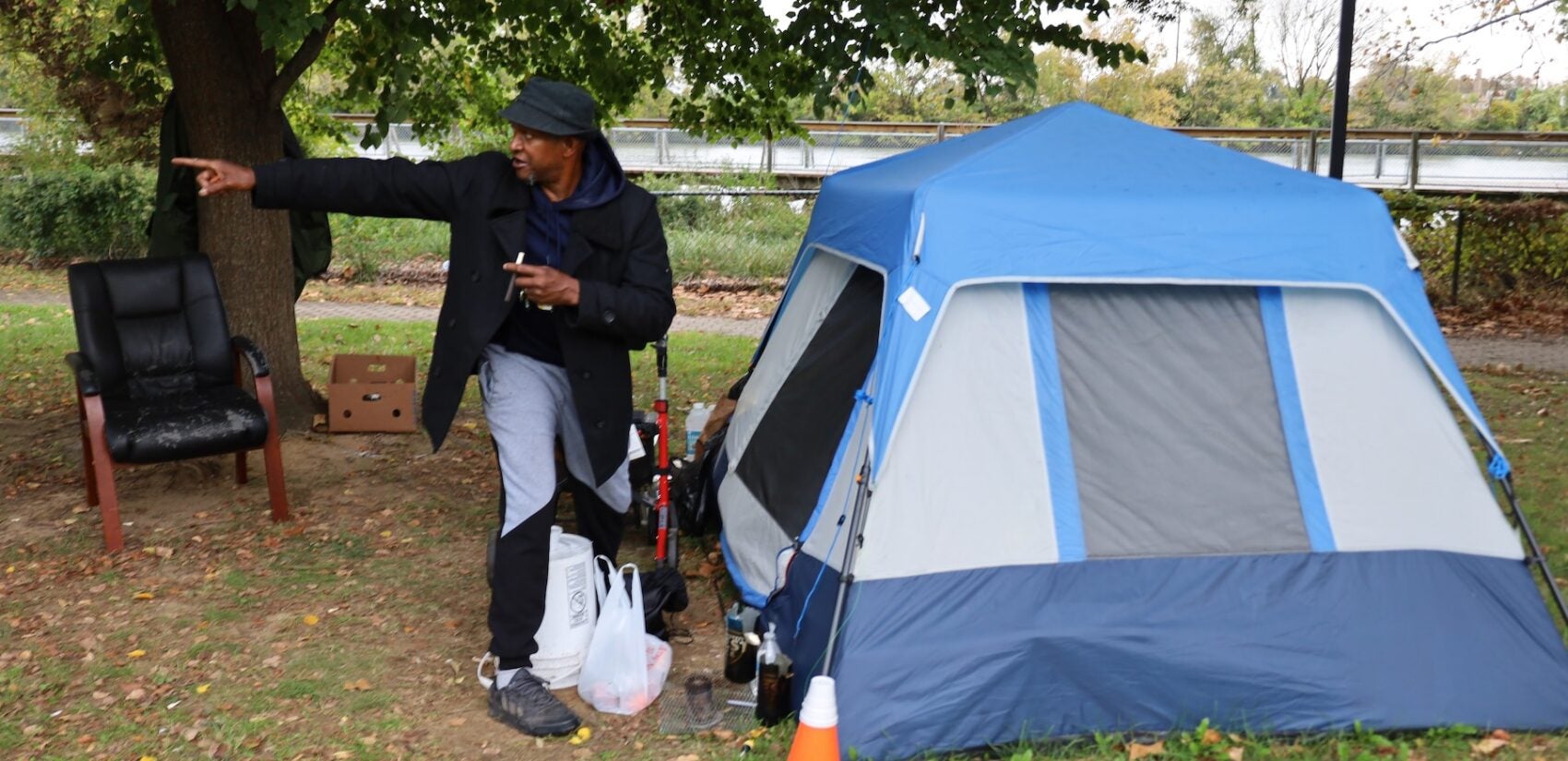
Advocates say city police crackdown on homeless
The task force report stated that homelessness should not be criminalized. But Meryem Dede of the Tide Shift Justice Project said law enforcement officers often do sweeps — where they forcibly move people sleeping outside.
“The police use the threat and promise of arrest to carry out these sweeps, and they do, in fact, arrest and ticket people in order to get them to move,” she said.
Dede says advocates want the city to commit to not implement criminalizing or discriminatory policies, practices and laws against people experiencing homelessness, such as sweeps, encampment bans, unnecessary arrests or fines.
Pyle said she has been treated roughly by police and employees of the business district nonprofit Downtown Visions while living on the street.
“You have Downtown Visions that will come by and kick and kick and kick,” Pyle said.
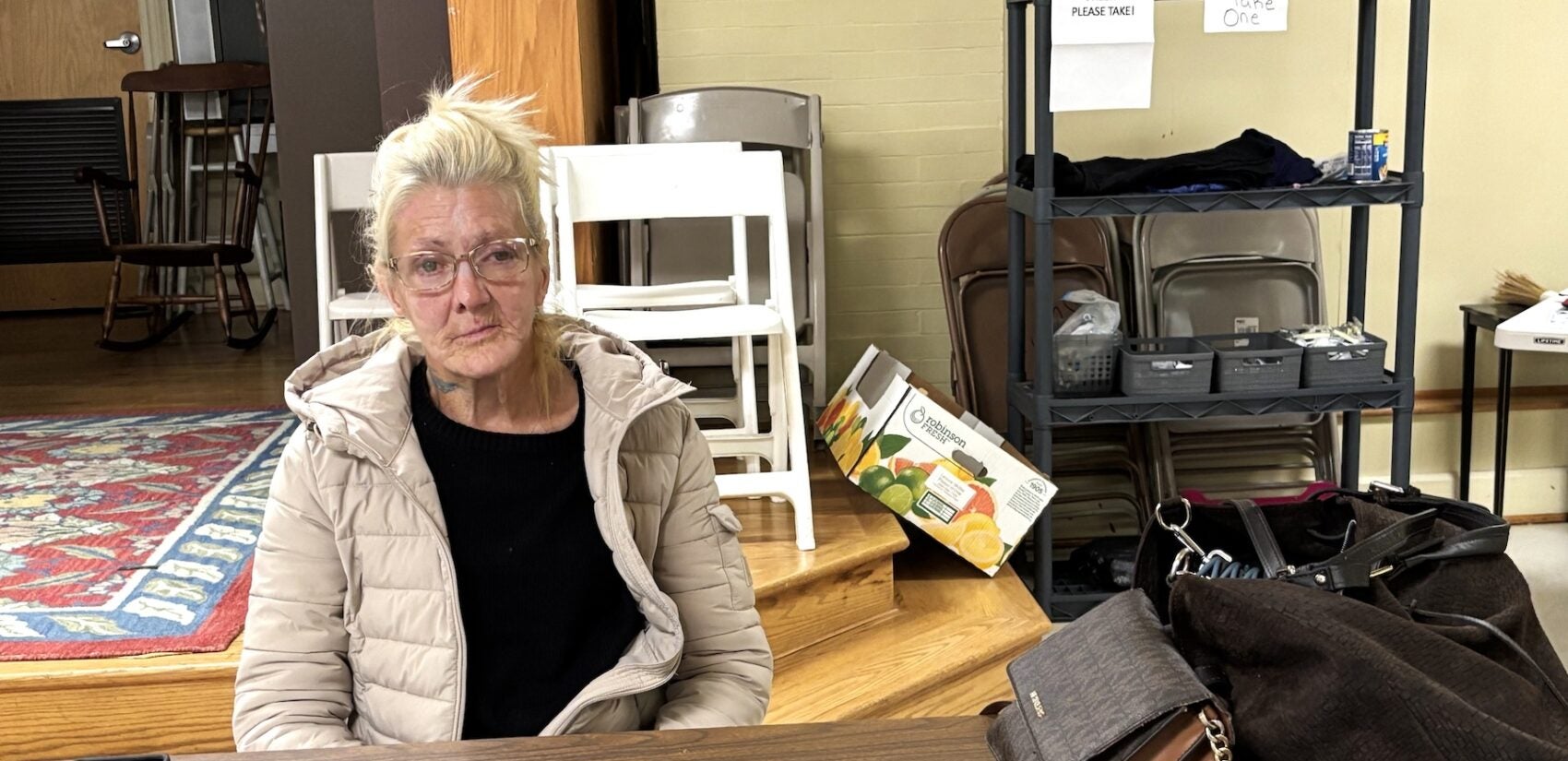
Wilmington settled a lawsuit with civil rights groups last year over the policing of people living on the street. Downtown Visions Executive Director Michael Maggitti said that means they no longer approach people loitering on city sidewalks to get them to move. He denies the group’s workers have kicked homeless people.
“We’ve never gotten a complaint that we kicked anyone,” he said. “We’ve certainly gotten complaints about, ‘Hey, your people woke me up and moved me.’ There was a time that that was acceptable, and now that the rules have changed, we follow the rules.”
Delaware’s homeless population increased 9% in 2024, from 1,245 to 1,358, according to the Point-in-Time Count report. Last year’s survey was the highest total count of people experiencing homelessness in the state, excluding 2021 and 2022. Available shelter beds increased during those years due to federal pandemic funding.
Beds with strings attached
Dede said the lack of available beds is helping drive Wilmington’s homeless crisis.
“When shelters don’t have enough beds for the number of people who need them, and even the few beds available require you to be sober or practice a certain faith, many people have no choice but to sleep outside,” she said.
Some shelters and substance use treatment centers are faith based and have rules clients must follow. Kim Eppehimer, CEO of Friendship House, which provides services to the unhoused across the state, said some places don’t accept LGBTQ+ residents or those with a criminal record.
Pyle has also been battling an opioid addiction. She currently has housing through New Life Ministries, a faith-based recovery program. She said she must pay $725 a month fee and attend religious programming. Unable to work, she said she feels pressure to come with the money on top of fines she has received for breaking rules.
“I’m basically trying to determine whether or not I’m just gonna pack and leave,” she said. I’d rather be back on the street. I didn’t have all the stress, I didn’t have all the demands.”
New Life Ministries Bishop Koy Stewart confirmed the $725 client fee participants must pay monthly, but he later said in a text message that charge is only to access their full programming and some clients are admitted before they are able to pay. He denied that clients are fined.
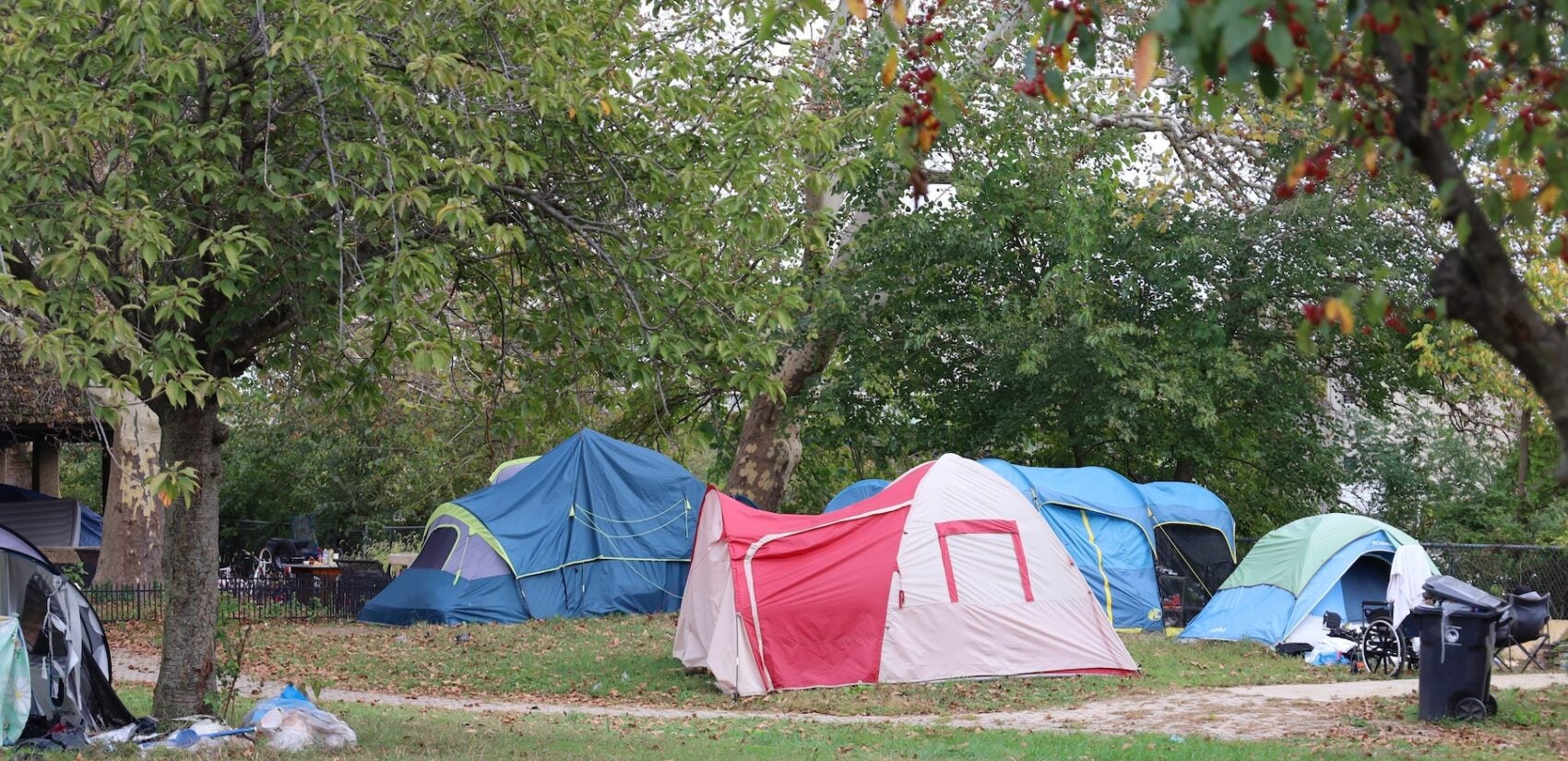
Advocates say Wilmington should put city funds and resources into housing people, working with service providers and making the city more affordable to live in.
Carney’s office did not answer whether the city has a responsibility to move unhoused people into housing. But his spokesperson said most homelessness services are the state’s responsibility, including creating more shelter beds.
“Wilmington’s taskforce focused on actions within our jurisdiction, while recognizing the state’s parallel efforts to improve service delivery,” Deputy Chief of Staff Daniel Walker said in an emailed statement. He said the mayor will determine next steps in the coming months.
Advocates released their own list of proposals, including a call for the city to add money into its budget for more emergency shelter beds and permanent supportive housing units. They also want Wilmington officials to mandate affordable units be part of any new housing development or renovation.
This story was supported by a statehouse coverage grant from the Corporation for Public Broadcasting.

Get daily updates from WHYY News!
WHYY is your source for fact-based, in-depth journalism and information. As a nonprofit organization, we rely on financial support from readers like you. Please give today.



